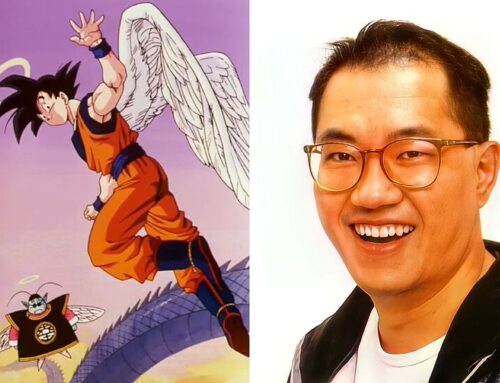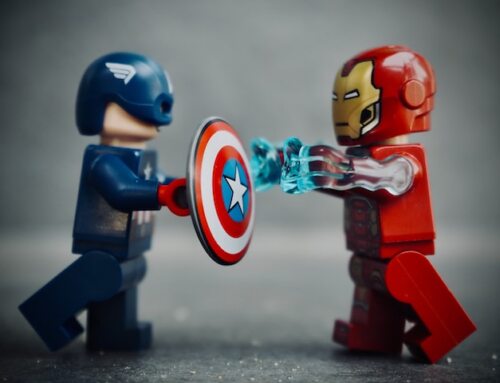“You guys are the real heroes.”
Athletes say it. Politicians say it. It’s often said out of gratitude for recognition, but is it true?
Are we, the everyday people, heroes?
On one hand, the concept of a “hero” is generalizable to the human experience. We all know what it is and could take on an act of heroism ourselves, perhaps even applying it to everyday experiences. On the other hand, a hero is an exceptional, special case.
So… is there not some kind of contradiction here?
I prefer the term paradox, and as with most paradoxes, there are some critical life truths to unearth within the hero archetype.
Let’s explore.
What Is an Archetype?
First, what is this word archetype? Archetypes are those classic human stories that we all understand. Some would say they’re spiritual or evolutionary – that they’ve been imprinted deep inside of us, and thus we all sort of “know” what they are even if we don’t have words for them.
Psychologist Carl Jung argued that archetypes were useful for understanding human development in both positive and negative manifestations (e.g. heroes and villains).
So what is the hero archetype?
Also called the hero’s journey, the classic hero archetype is, in a nutshell, a positive transformational arc where a character overcomes a major struggle, vanquishes an enemy, and acquires some new knowledge. With this victory, the hero returns to the tribe with this new knowledge or strength, ready to contribute and add value to his home. They are, in the most big-picture sense, a hero.
Archetypes are by definition generalizable – we can take the types of events and actions of the archetypal hero and perform them in our own life. Your “dragon” may not be a living monster, but it’s something that scares you or resists you, and you fight it to obtain some “treasure”. The treasure might not be money or things, but it’s something of a different type of value.
Similarly, the hero archetype is also scalable. By this I mean you can in some ways apply it to smaller, everyday things as well as big events. Not all of us leave our home country, fight a monster, or accomplish some outlandish feat. But we’ve all left our households and comfort zones.
But how exactly do we apply the hero’s archetype?
LEAVE YOUR COMFORT ZONES
There are comfort zones that must be left, even if only temporarily. Leaving your comfort zone is not only good for you but it’s good for the space you leave because of what you may bring back to it.
There is no adventure in comfort. This is a big problem for our modern, climate-controlled world. We’ve become so used to comfort that pain of any kind is unthinkable. We cancel those with different opinions, because we can’t even forgive those who cause us the pain of a difficult conversation or remediation. Then, we avoid even socializing with new people and would rather watch from afar on our phones.
We are in the era of the snowflake. We melt at the slightest temperature rise. We’ll be the downfall of our world if we don’t step out of our comfort zone to slay the dragon and find the treasure, since our world needs the strength we could bring them.
ATTACK YOUR PROBLEMS
There are dragons to slay, fears to face, and challenges that will terrify you and may even kill you. But they must be faced, and only once these proverbial dragons are slain can the treasure be found and brought home.
Novelty alone is stimulating and even anti-aging. Facing new things forces the brain to grow and adapt. Of course, catastrophic failure is possible. Curiosity killed the cat after all.
Will you be overpowered or injured? Will you fail and return in shame?
Maybe. But the alternative is far worse: inevitable decay. Stay still and you stagnate. So move.
Here’s where you start: prepare yourself the best you can by attacking all the minor problems. Remember, we said the hero concept is scalable. You may not be a hero for addressing that problem in your marriage, but you’ll learn skills and become stronger. Like in a video game, you need to level up.
Maybe after doing this a thousand times, you’ll be ready to take on the massive problems lurking down the road of life.
You don’t run a marathon with having never even run 5 kilometres. (You probably don’t want to start with a 5K either…).
Start where you can, take baby steps, fail forward, learn.
On the other hand, sometimes success is actually overcoming failure with grace and humility. Treasures can be found in loss and defeat. Losses can amount to wins in the long term.
The key here is that you face whatever comes your way with courage, whatever the result.
MAKE SACRIFICES
Parts of you must die, or at least you must drop things that you hold dearly. And like in every step of the journey, you must be the one to take action.
This may be your adolescent, unrealistic fantasies. It could be an old relationship that is holding you back even though you love them. It may be lust or some other vice that has you in its grip.
Often we know when we’re keeping one foot in the door of a place we ought not to be. Maturity requires us to walk away. If you don’t, you may enter that place to never return.
Perhaps you’ve fallen into a vice again and again. Your love of sex, food, laziness – they seem to have this unmanageable hold on you.
Remember, applying the hero archetype to the small things will help you slay when the real dragons come. If you keep failing now and don’t even put in the effort, why do you presume you’ll be victorious when something much bigger comes?
You miss the ascent of the hero’s journey if you never overcome. The archetype is there for you to understand your need for killing the vice, for taking responsibility, for going the extra mile – these are required to be victorious in the end.
There’s a reason why really successful people, while human like the rest of us, are often so good at self-control. They knew they needed to take responsibility for their actions… they knew they had to learn how to use a schedule, say no to the wrong things, and stop doing things that held them back (drugs, pornography, whatever).
In a word, this is sacrifice, and sacrifice is the hallmark of maturity, to quote Psychologist Jordan Peterson.
No sacrifice means no growth, no treasure, no slaying of the dragon, and no value to bring back to your village.
No death to self, no hero’s journey. Big or small.
_____________________________________
Hope you appreciated this post. As always love your feedback below or on social!
Peace and love.





